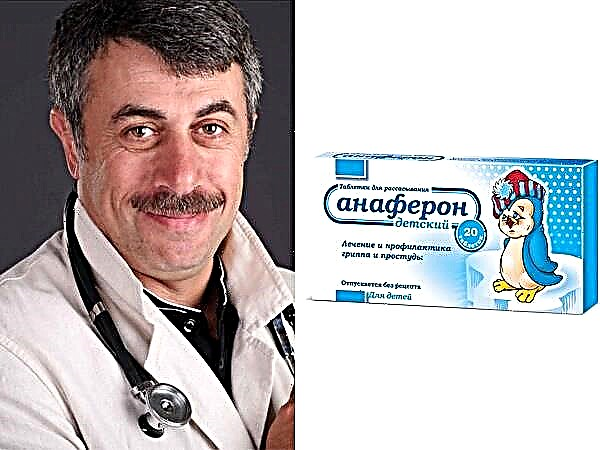
"Buscopan" is a drug from the group of M-anticholinergics. Due to its pronounced antispasmodic effect, such a medication is in demand for spasms in the gastrointestinal tract, urinary and biliary tract. During pregnancy, the drug is prescribed in order to eliminate spasms of the smooth muscles of the uterus. "Buscopan" is represented by coated tablets and rectal suppositories. Most often, expectant mothers are prescribed suppositories, so we will consider this form in more detail.
Features of the drug
"Buscopan" in candles is sold without a prescription, 10 pieces per pack. Suppositories are packaged in 5 units in foil strips. They are characterized by an oblong shape, smooth surface and ivory shade. Storage of such candles at home is recommended at room temperature. Their shelf life is 5 years, and the average price of one box is 350 rubles.

The main ingredient of the drug is hyoscine butyl bromide... Its dosage in each suppository is 10 mg. Additionally, solid fat and purified water are included in the composition of the drug so that the candle holds its shape and dissolves quickly after administration. There are no other chemical compounds in this form of "Buscopan".
Operating principle
The active ingredient in suppositories is able to block M-cholinergic receptors, which are located in smooth muscles. The result will be a local spasmolytic effect, which manifests itself in the form of relaxation of the muscular membrane of the internal organs. The drug acts on the intestines, biliary tract, uterus, urinary tract. In addition to eliminating spasms, it can also suppress the secretion of glands involved in food digestion.
Is it allowed for pregnant women?
The annotation to the suppositories indicates that a sufficient number of studies have not been carried out to prove the safety of Buscopan for the fetus. And therefore, treatment with such a drug during pregnancy is recommended only as prescribed by a doctor.

Obstetricians-gynecologists have been using such suppositories in their practice for many years and do not notice a negative effect on the child. However, all doctors focus the attention of pregnant women on the fact that you cannot use Buscopan on your own.
The medicine should be prescribed by a specialist who observes the expectant mother, is sure of the need for this drug and will write out an individual treatment regimen.
Putting suppositories on your own initiative or just in case is prohibited.
When is it prescribed for expectant mothers?
The most common reason for the appointment of "Buscopan" to women in position is preparation for childbirth. The use of suppositories later in life prepares the cervix, facilitating its opening during childbirth. The medication is often prescribed for prophylaxis at 38-39 weeks, when the woman's body and the fetus are already fully ready for childbirth. In such a situation, suppositories begin to be placed 5-10 days before the expected date of delivery. In addition, suppositories are also used at 40-41 weeks, if pregnancy is overdue.

The use of "Buscopan" is also possible in the early stages, but only under the supervision of a doctor. The remedy can be prescribed in the 1st trimester if there is a threat of miscarriage, and the woman complains of pain in the lower abdomen. If there is a risk of termination of pregnancy, the woman will be prescribed medication.
One of the options would be the use of "Buscopan", however, due to the pronounced effect and insufficient data on the effect of the drug on the fetus, many obstetricians-gynecologists prefer more gentle drugs. They resort to "Buscopan" at an early date in rare cases, when it is impossible to do without its appointment.
The reason for using suppositories in the 2nd trimester is also the threat of termination of pregnancy.
The decision to use a medicine for this indication is made individually, because with the wrong dosage or non-observance of the doctor's recommendations, the medication can provoke premature birth. In addition, both in the early stages and at the end of pregnancy, "Buscopan" can be used for spasms in the gastrointestinal tract (pylorospasm, intestinal colic, peptic ulcer, spasm of the biliary tract), as well as for renal colic.

Although the drug enters the bloodstream in small quantities, and its action is mainly local, the manufacturer recommends avoiding "Buscopan" if possible in 1-2 trimesters, because there is no exact data on the effect of hyoscine butyl bromide on the development of the embryo, despite the long-term practice of using suppositories.
If there is an opportunity to replace "Buscopan" with colic, spasm or hypertonicity with other drugs, the safety of which has been proven for the baby, it should be used.
Contraindications
Treatment with "Buscopan" in suppositories is prohibited in case of hypersensitivity to the active ingredient of the drug. The drug is not prescribed for an autoimmune disease called myasthenia gravis. In addition, the drug is contraindicated in a colon defect called megacolon. If a woman has any chronic pathologies, the possibility of using "Buscopan" is determined by her attending physician.
Suppositories can enhance the healing effects of certain other medicines, such as antihistamines or beta-agonists. This interaction can increase the risk of side effects of "Buscopan" and the drugs used with it, as well as increase the side effects, if they have already appeared. Therefore, the compatibility of drugs that the expectant mother is already taking should be checked with a doctor before using suppositories.

The medication should not be used if a woman has a heart rhythm disorder (with tachyarrhythmias), as well as in case of angle-closure glaucoma and suspected bowel obstruction. If during the treatment with "Buscopan" the pain in the abdomen does not stop or increases, the expectant mother should immediately inform the doctor about it.
Immediate counseling is also required for other warning signs, such as vomiting, fever, stool changes, low blood pressure, or fainting.
Side effects
Some women react to the active substance "Buscopan" with allergy symptoms. It manifests itself as skin reactions, such as redness or hives, and other types of allergies, including anaphylaxis. For this reason, the use of the drug in allergy-prone patients requires increased caution.

Other possible side effects that occasionally occur in some women during the use of suppositories are:
- dry mouth;
- constipation;
- increased heart rate;
- drowsiness;
- retention of urine;
- dry skin;
- nausea;
- eczema of the skin of the soles and palms (dyshidrotic).
The same negative symptoms appear when the drug dose is exceeded. In addition, an overdose of "Buscopan" can inhibit intestinal motility and cause visual impairment, so it is unacceptable to change the dosage of suppositories prescribed by the doctor on your own. Most of the side effects of suppositories go away on their own, as soon as the medicine is canceled, but in some cases, medications have to be used to eliminate undesirable consequences.

Instructions for use
The method of using the suppository is determined by the doctor, taking into account the clinical picture and indications. In the instructions it is recommended to insert "Buscopan" rectally, and this option of use is, indeed, in demand if a woman has spasms in the urinary tract or problems with the digestive tract. If the medicine should act on the uterus and its cervix, then the suppositories are inserted into the vagina.
It is also important to check with the doctor the scheme for using the drug. Some expectant mothers "Buscopan" are prescribed one suppository per day, others are prescribed 2 candles at once, and others are recommended to put one candle twice a day or more often. The course of treatment is adjusted taking into account changes in symptoms and analyzes of a woman in a position.
To use the drug correctly, you need to wash your hands, take out the "Buscopan" from the foil, lie down and gently insert the narrowed end into the rectum, or, if the doctor prescribed suppositories vaginally, insert it deep into the vagina.


In order to avoid the rapid melting of the suppository in the hand, before using "Buscopan" can be sent to the refrigerator for a while. Then the cooled candle will not have time to soften, but will keep its shape and begin to dissolve already inside the patient's body.
In order for the drug to remain in the intestines or vagina, and its active compound to act faster, after the introduction of the suppository, it is recommended to lie down quietly for 20-30 minutes.
Reviews
Most of the reviews of women to whom doctors prescribed Buscopan while expecting a baby are positive. They note a lot of good aspects of the drug, including the rapid elimination of spasms, ease of use, rare side symptoms, a minimum of contraindications. Mother-to-be confirmed that after the use of candles, labor activity intensified, and the process of childbirth itself was easier.

Doctors also note the positive effect of "Buscopan" in the last weeks of pregnancy to stimulate the onset of labor, when the baby's birth is late, or the cervix is not at all ready for the onset of labor. They confirm that thanks to these suppositories, the muscles of the pelvic organs relax, the neck becomes more elastic and opens without problems, the spasms disappear, the risk of neck ruptures decreases. Among the disadvantages of drugs, only the high cost is usually mentioned, since there are drugs with a similar effect that are cheaper.
Analogs
If for some reason it is impossible to use Buscopan, the doctor will replace it with medications with a similar effect on the female body. Several drugs are no less effective for tonicity and pain caused by spasms.
- "Papaverine". This medication helps relieve spasms, reduce uterine tone and lower blood pressure. It is produced in three dosage forms (suppositories, tablets, injection solution), is available in pharmacies, is allowed for pregnant women and does not have a harmful effect on the baby. It is used both for increased uterine tone and for headaches, intestinal colic, bronchospasm, renal colic and other pathologies.

- "No-shpa". This Hungarian antispasmodic works on smooth muscles thanks to a substance called drotaverine. The medicine is represented by tablets and an injection solution. It is prescribed for hypertonicity of the uterus and problems with labor at any stage of pregnancy.

- "Drotaverin". An analogue of "No-shpa" of domestic production is much cheaper, it also affects smooth muscle cells, quickly eliminates spasms and helps prevent miscarriage in the early stages. It can be replaced by other drugs based on drotaverine, for example, "Spazmol", "Drotaverin-Teva" or "Droverin".

- "Platyphyllin". This drug acts like Buscopan, effectively relieving spasms of the intestines, ureters, gallbladder and blood vessels. It is available in tablets and in injectable form. Pregnant women are rarely prescribed such a remedy for colic or hypertonicity, if there are no safer medicines at hand.

For more information on taking the drug "Buscopan" in the form of suppositories, see the following video.



